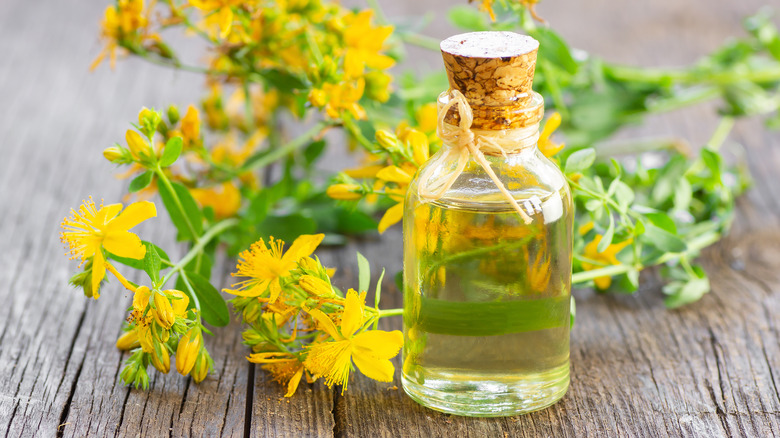Could This Herbal Remedy Help Treat Mild Depression?
Depression is a mental health condition that affects mood, cognition, behavior, and even physical health, as per the Mayo Clinic. It is characterized by a range of symptoms that vary in intensity, from lingering feelings of sadness to changes in appetite, lack of energy, sleep disturbances, restlessness, and loss of interest in preferred activities.
Nowadays, there are a number of ways to treat the condition, including psychiatric medications, psychotherapy, electroconvulsive therapy, and vagus nerve stimulation, as outlined by WebMD. In addition to more clinical avenues for treatment, many people with depression find relief by making lifestyle changes, such as taking time to journal or meditate, engaging in regular physical activity, abstaining from excessive caffeine, and eating a well-balanced diet.
Others prefer to look to herbal remedies for symptom alleviation. Healthline points out some common herbal remedies, including rhodiola, saffron, and St. John's wort. The latter of these remedies has gained in popularity in recent years and has even been scientifically studied for its positive effects on people with depression.
St. John's Wort may be worth a try
Depression is a widespread condition, affecting one in 10 U.S. adults and more than 300 million people worldwide, as per Healthline. It also doesn't show up in the same way in every person, meaning not every treatment method is effective across the board. When it comes to treating the condition, some people turn toward natural remedies to reduce the risk of side effects, which are typically associated with psychiatric medication use and other treatments.
One of these herbal remedies is St. John's wort, which Healthline says has been around for centuries and used precisely to alleviate symptoms of depression. Although it is not approved by the Food and Drug Administration (FDA) as an official medication for depression, researchers have studied its effects on the mood disorder. One 2005 study published in BMJ found that participants who ingested between 900 and 1,800 milligrams of the herb on a daily basis for six weeks saw a 56.6% decrease in their depression scores. Those who were given prescribed medications noticed a smaller decrease of 44.8%.
A later 2016 review of the existing research that was published in Systematic Reviews looked at the success of St. John's wort for treating depression. It found that the herb was able to reduce symptoms in those with mild to moderate depression when compared to a placebo. That being said, more research is needed to further assess the outcomes of using St. John's wort as an alternative depression treatment.


